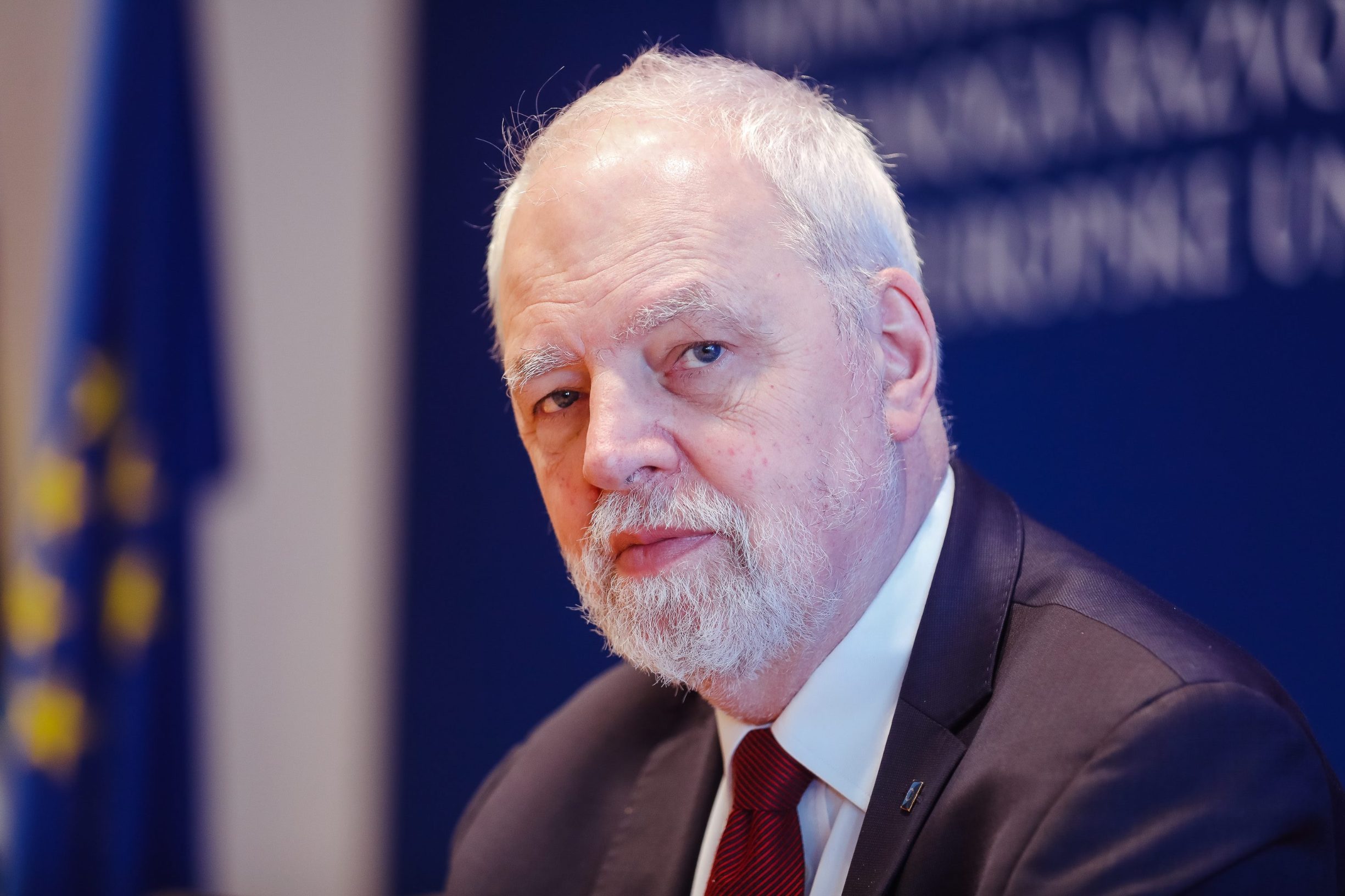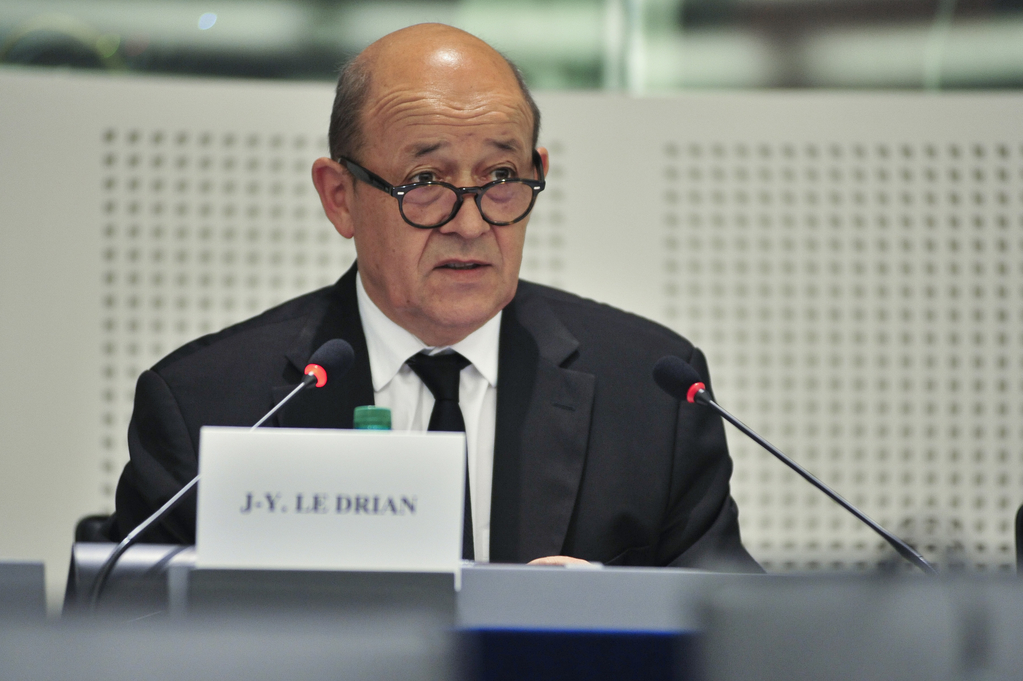
- I believe that the time to make choices has come. To decide what we want to be, and also what world we want to live in. And I believe that we cannot meet the expectations of our citizens – their need for security, their aspiration to prosperity, their desire to prepare for the future – if we do not take action in every area to ensure Europe can do so – said Le Drian while questioning Europe's power to deal with the emerging global disruptions to the world order.
But to establish the concrete security measures Europe needs ''concrete military, economic and technological means to better preserve our shared conception of the world order''.
While greeting the future joint initiative of France and Netherlands in innovations and foreign policy Le Drian expressed major points for Europe's future vision.
In the following we are bringing you the highlights of his speech.
Europe needs to act avoiding crucial errors
Le Drian is calling that Europe can no longer hesitate and needs to act every time it is necessary.
At the same time it shouldn't commit four strategic errors mentioned as following:
1. The error of allowing force to prevail over law; as if allowing arms to speak without trying to return to the path of diplomacy and dialogue, could be a solution.
2. Believe that approach that has enabled our continent to recover from two world wars and advance towards its reunification could only work for Europe.
3. Forgetting that history can always be tragic and that the lessons history has taught us could be swept away by world events and conflagration.
4. Believing that we can ensure our place and our security in a brutal and violent world simply through the example of our model and with our words.
Europe is back
''Since the start of the year, from the Middle East to the Sahel region, by way of Libya, we have, as Europeans, stepped up our initiatives and shown that Europe is back. It is back with clear objectives, which are to ensure our security, prevent escalation, find the path to negotiations everywhere, and commit to restoring stability over the long term.'' - he said highlighting it is back with the ''clout of the institutions and the agility of action coalitions that bring together, on a case-by-case basis the most willing European players', among which is certainly supportive Josep Borrell, High Representative of the EU.
Europe has regained its strength
''Regarding the Libyan crisis, which directly concerns Europe because of terrorism , migration and the power games issues, Le Drian mentioned the importance of the Berlin and Pau summit, as well as the European action in addressing the Gulf region.
In Berlin, the President of the Commission, the President of the European Council and the High Representative were by our side and the EU is now going to play its full role in implementing what was decided. Our immediate priority is to support the United Nations in order to consolidate the truce. Our second priority is to then achieve a lasting ceasefire. And work has also been launched to enforce the arms embargo and document blatant violations, using all the means at our disposal''.
Josep Borrell and Charles Michel were in Pau, when France held a crucial Summit with the G5 Sahel countries. The EU and the Member States supported the launch of the International Coalition that we proposed. I believe this is a major turning point for the Sahel, that we need to support collectively through 4 goals (…): fight against terrorism, building military and interventions capabilities of G5 Sahel countries; helping to restore the government control and services, doing more and better in terms of development.
Together, at an emergency meeting called by the High Representative in Brussels, we backed the same call for restraint and de-escalation. This is crucial to the stability of the region and the combat that we are waging against Daesh within the Global Coalition.This fight by the Coalition against Daesh has to continue, while respecting Iraqi sovereignty. The message sent by the Iraqi Parliament a few days ago, although it came in a particular context, must be taken as a political message. The continuation of the Global Coalition against Daesh’s action requires proper linkage too with the concept of Iraqi sovereignty. I believe we have understood.
Along with seven other Member States – Germany, Belgium, Denmark, Greece, Italy, Portugal and, of course, the Netherlands – we just launched the European Maritime Awareness in the Strait of Hormuz (EMASOH) mission, in this spirit of restraint and de-escalation.
Regarding the JCPoA, the European Union and its Member States reiterated their determination to preserve the agreement and to get Iran to resume its compliance with its commitments as soon as possible. Along with Germany and the United Kingdom, we have decided to activate the JCPoA conflict-resolution mechanism. We have done so to ensure the agreement is respected, and did so within its framework. We did so in order to open a space for political dialogue and to signal a rejection of the US maximum pressure approach that only heightens Iranian resilience and precipitates exactly what it is meant to prevent. We need to do everything we can to prevent a nuclear proliferation crisis from compounding the current situation of instability.''






Komentari
0